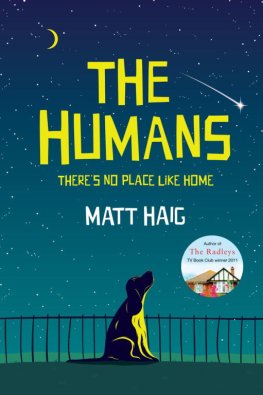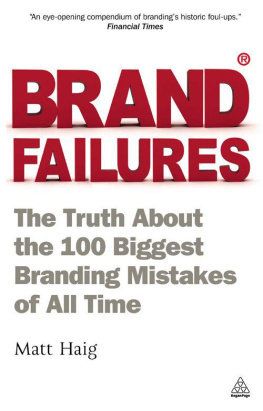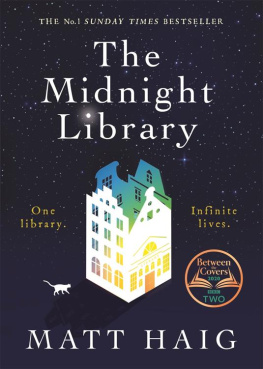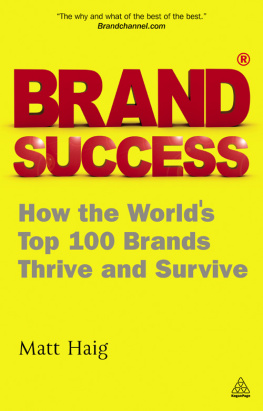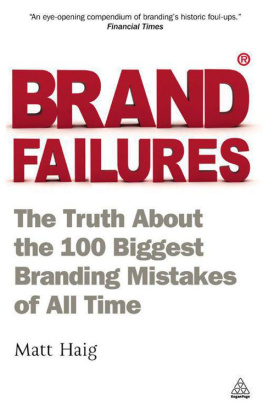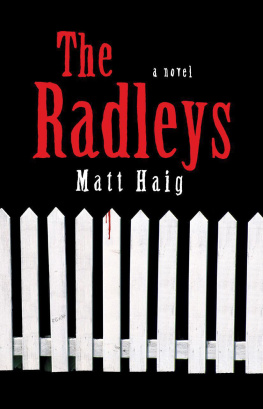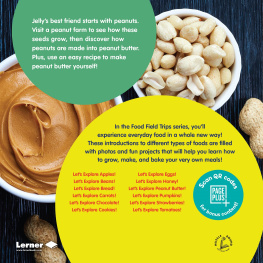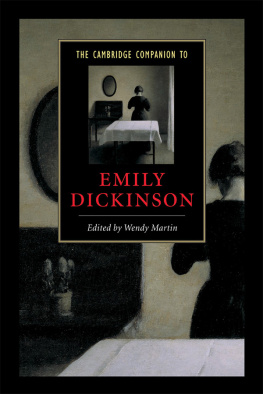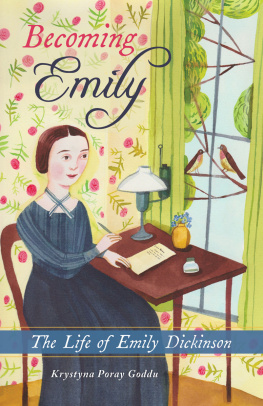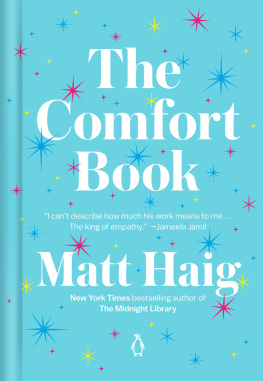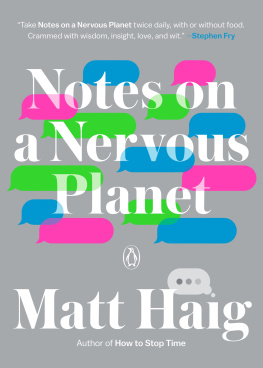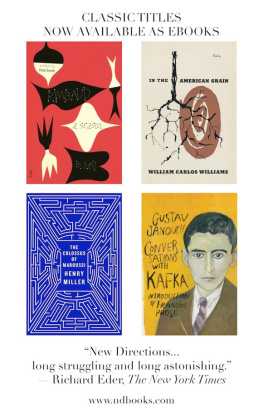To Andrea, Lucas and Pearl
I have just got a new theory of eternity.
Albert Einstein

Preface
(An illogical hope in the face of overwhelming adversity)
I know that some of you reading this are convinced humans are a myth, but I am here to state that they do actually exist. For those that dont know, a human is a real bipedal lifeform of mid-range intelligence, living a largely deluded existence on a small water-logged planet in a very lonely corner of the universe.
For the rest of you, and those who sent me, humans are in many respects exactly as strange as you would expect them to be. Certainly it is true that on a first sighting you would be appalled by their physical appearance.
Their faces alone contain all manner of hideous curiosities. A protuberant central nose, thin-skinned lips, primitive external auditory organs known as ears, tiny eyes and unfathomably pointless eyebrows. All of which take a long time to mentally absorb and accept.
The manners and social customs too are a baffling enigma at first. Their conversation topics are very rarely the things they want to be talking about, and I could write ninety-seven books on body shame and clothing etiquette before you would get even close to understanding them.
Oh, and lets not forget The Things They Do To Make Themselves Happy That Actually Make Them Miserable. This is an infinite list. It includes shopping, watching TV, taking the better job, getting the bigger house, writing a semi-autobiographical novel, educating their young, making their skin look mildly less old, and harbouring a vague desire to believe there might be a meaning to it all.
Yes, it is all very amusing, in a painful kind of way. But I have discovered human poetry while on Earth. One of these poets, the very best one (her name was Emily Dickinson), said this: I dwell in possibility. So let us humour ourselves and do the same. Let us open our minds entirely, for what you are about to read will need every prejudice you may have to stand aside in the name of understanding.
And let us consider this: what if there actually is a meaning to human life? And what if humour me life on Earth is something not just to fear and ridicule but also cherish? What then?
Some of you may know what I have done by now, but none of you know the reason. This document, this guide, this account call it what you will will make everything clear. I plead with you to read this book with an open mind, and to work out for yourself the true value of human life.
Let there be peace.
PART I
I took my power in my hand
So, what is this?
You ready?
Okay. Inhale. I will tell you.
This book, this actual book, is set right here, on Earth. It is about the meaning of life and nothing at all. It is about what it takes to kill somebody, and save them. It is about love and dead poets and wholenut peanut butter. Its about matter and antimatter, everything and nothing, hope and hate. Its about a forty-one-year-old female historian called Isobel and her fifteen-year-old son called Gulliver and the cleverest mathematician in the world. It is, in short, about how to become a human.
But let me state the obvious. I was not one. That first night, in the cold and the dark and the wind, I was nowhere near. Before I read Cosmopolitan, in the garage, I had never even seen this written language. I realise that this could be your first time too. To give you an idea of the way people here consume stories, I have put this book together as a human would. The words I use are human words, typed in a human font, laid out consecutively in the human style. With your almost instantaneous ability to translate even the most exotic and primitive linguistic forms, I trust comprehension should not be a problem.
Now, to reiterate, I was not Professor Andrew Martin. I was like you.
Professor Andrew Martin was merely a role. A disguise. Someone I needed to be in order to complete a task. A task that had begun with his abduction, and death. (I am conscious this is setting a grim tone, so I will resolve not to mention death again for at least the rest of this page.)
The point is that I was not a forty-three-year-old mathematician husband, father who taught at Cambridge University and who had devoted the last eight years of his life to solving a mathematical problem that had so far proved unsolvable.
Prior to arriving on Earth I did not have mid-brown hair that fell in a natural side-parting. Equally, I did not have an opinion on The Planets by Holtz or Talking Heads second album, as I did not agree with the concept of music. Or I shouldnt have, anyway. And how could I believe that Australian wine was automatically inferior to wine sourced from other regions on the planet when I had never drunk anything but liquid nitrogen?
Belonging as I did to a post-marital species, it goes without saying that I hadnt been a neglectful husband with an eye for one of my students any more than I had been a man who walked his English Springer Spaniel a category of hairy domestic deity otherwise known as a dog as an excuse to leave the house. Nor had I written books on mathematics, or insisted that my publishers use an author photograph that was now nearing its fifteenth anniversary.
No, I wasnt that man.
I had no feeling for that man whatsoever. And yet he had been real, as real as you and I, a real mammalian life form, a diploid, eukaryotic primate who, five minutes before midnight, had been sitting at his desk, staring at his computer screen and drinking black coffee (dont worry, I shall explain coffee and my misadventures with it a little later). A life form who may or may not have jumped out of his chair as the breakthrough came, as his mind arrived at a place no human mind had ever reached before, the very edge of knowledge.
And at some point shortly after his breakthrough he had been taken by the hosts. My employers. I had even met him, for the very briefest of moments. Enough for the wholly incomplete reading to be made. It was complete physically, just not mentally. You see, you can clone human brains but not what is stored inside them, not much of it anyway, so I had to learn a lot of things for myself. I was a forty-three-year-old newborn on planet Earth. It would become annoying to me, later on, that I had never met him properly, as meeting him properly would have been extremely useful. He could have told me about Maggie, for one thing. (Oh, how I wish he had told me about Maggie!)
However, any knowledge I gained was not going to alter the simple fact that I had to halt progress. That is what I was there for. To destroy evidence of the breakthrough Professor Andrew Martin had made. Evidence that lived not only in computers but in living human beings.
Now, where should we start?
I suppose there is only one place. We should start with when I was hit by the car.
Detached nouns and other early trials for the language-learner
Yes, like I said, we should start with when I was hit by the car.
We have to, really. Because for quite a while before that there was nothing. There was nothing and nothing and nothing and
Something.
Me, standing there, on the road.
Once there, I had several immediate reactions. First, what was with the weather? I was not really used to weather you had to think about. But this was England, a part of Earth where thinking about the weather was the chief human activity. And for good reason. Second, where was the computer? There was meant to be a computer. Not that I actually knew what Professor Martins computer would look like. Maybe it looked like a road. Third, what was that noise? A kind of muted roaring. And fourth: it was night. Being something of a homebird, I was not really accustomed to night. And even if I had been, this wasnt just any night. It was the kind of night I had never known. This was night to the power of night to the power of night. This was night cubed. A sky full of uncompromising darkness, with no stars and no moon. Where were the suns? Were there even suns? The cold suggested there might not have been. The cold was a shock. The cold hurt my lungs, and the harsh wind beating against my skin caused me to shake. I wondered if humans ever went outside. They must have been insane if they did.

